Volunteers needed to halt Himalayan Balsam menace
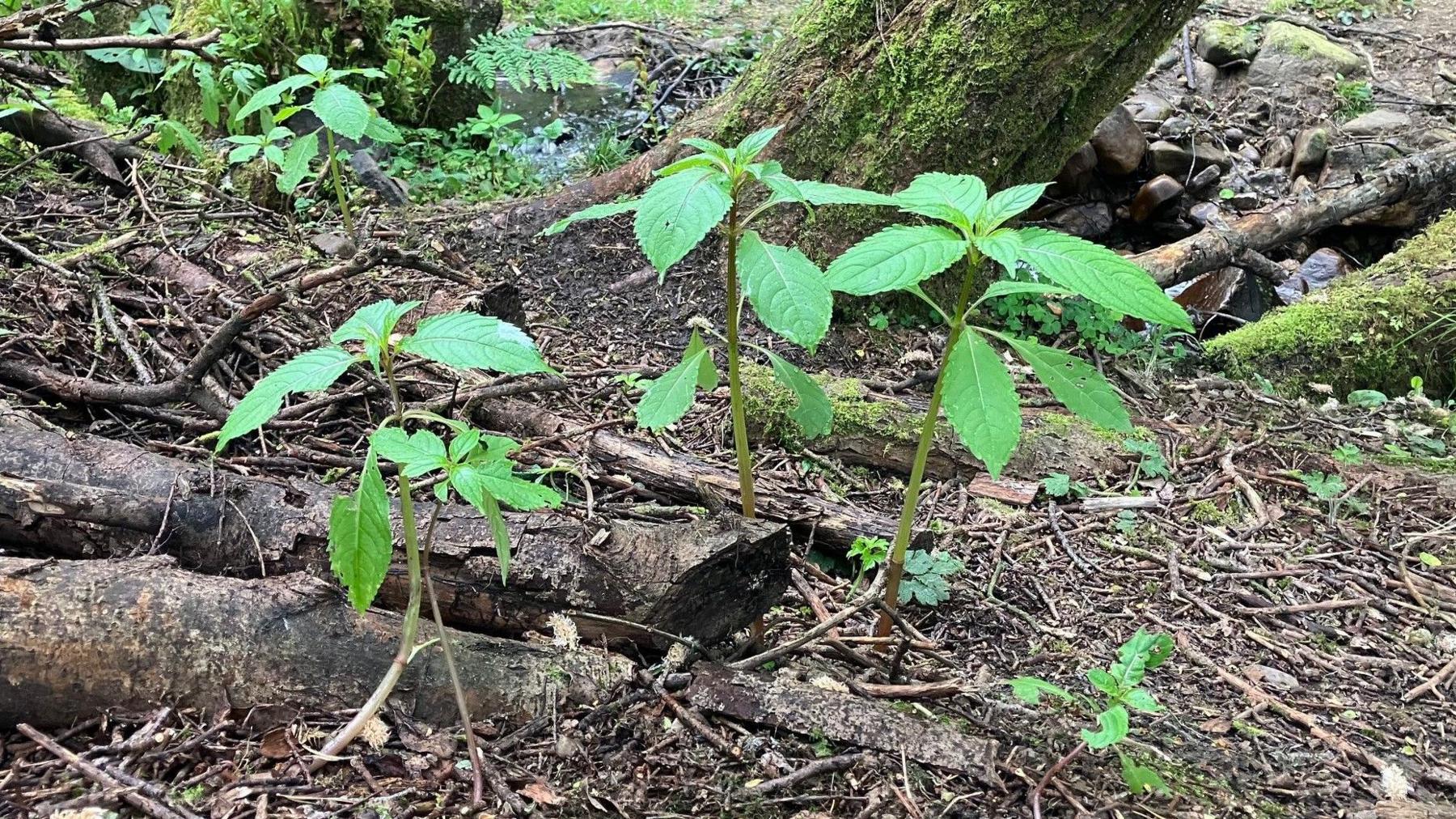
Himalayan Balsam is native to northern India and is an invasive species
- Published
An appeal has been made for volunteers to help clear Himalayan Balsam from a site owned by the Woodland Trust.
The plant is considered an invasive species in the UK and has taken hold across the country - including at the Smithills Estate near Bolton.
It is hoped volunteers can help remove the balsam before the plant flowers in July and August and the seeds are scattered across the ground.
In a short space of time, Himalayan Balsam can smother other vegetation as it grows and spreads.
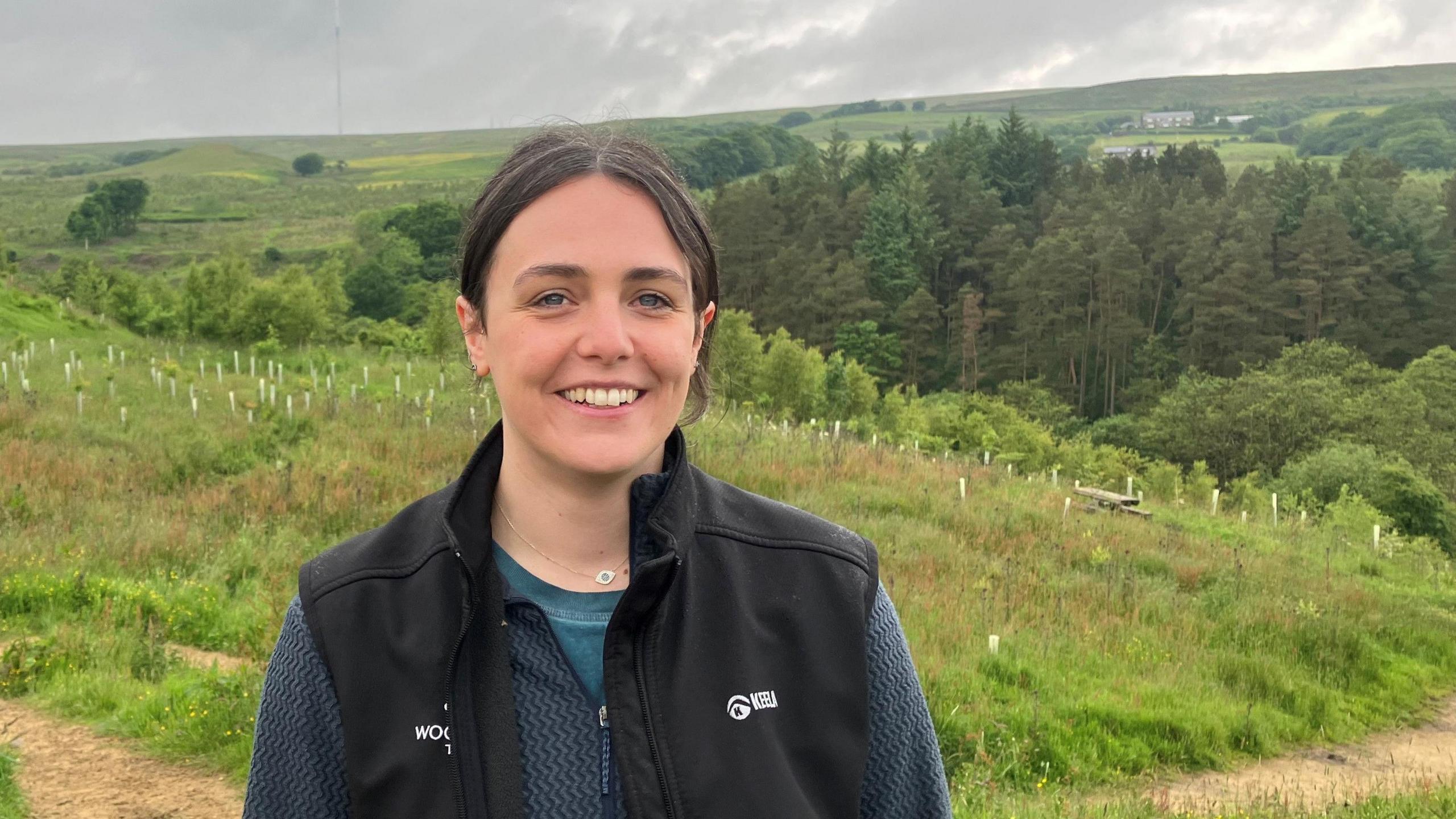
Roberta Gleaves of the Woodland Trust faces a race against time at the Smithills Estate in Bolton
Himalayan Balsam was first imported to the UK by Victorian botanists in 1839, as a garden plant. It has no natural rivals and can reach a height of up to three metres.
It can quickly dominate ditches and streams because its seeds travel in the water, meaning riverbanks can quickly become infested.
The result is that native species struggle to survive.
Roberta Gleaves of the Woodland Trust at the Smithills Estate said: "We want to try and get rid of Himalayan Balsam. We've got quite a lot of different patches of it across the site and we need loads of hands to try and pull it out.
"Its important to do this before it flowers in July and August because the seeds scatter everywhere. Its a problem because it changes the soil, so not many other plants can grow around it."
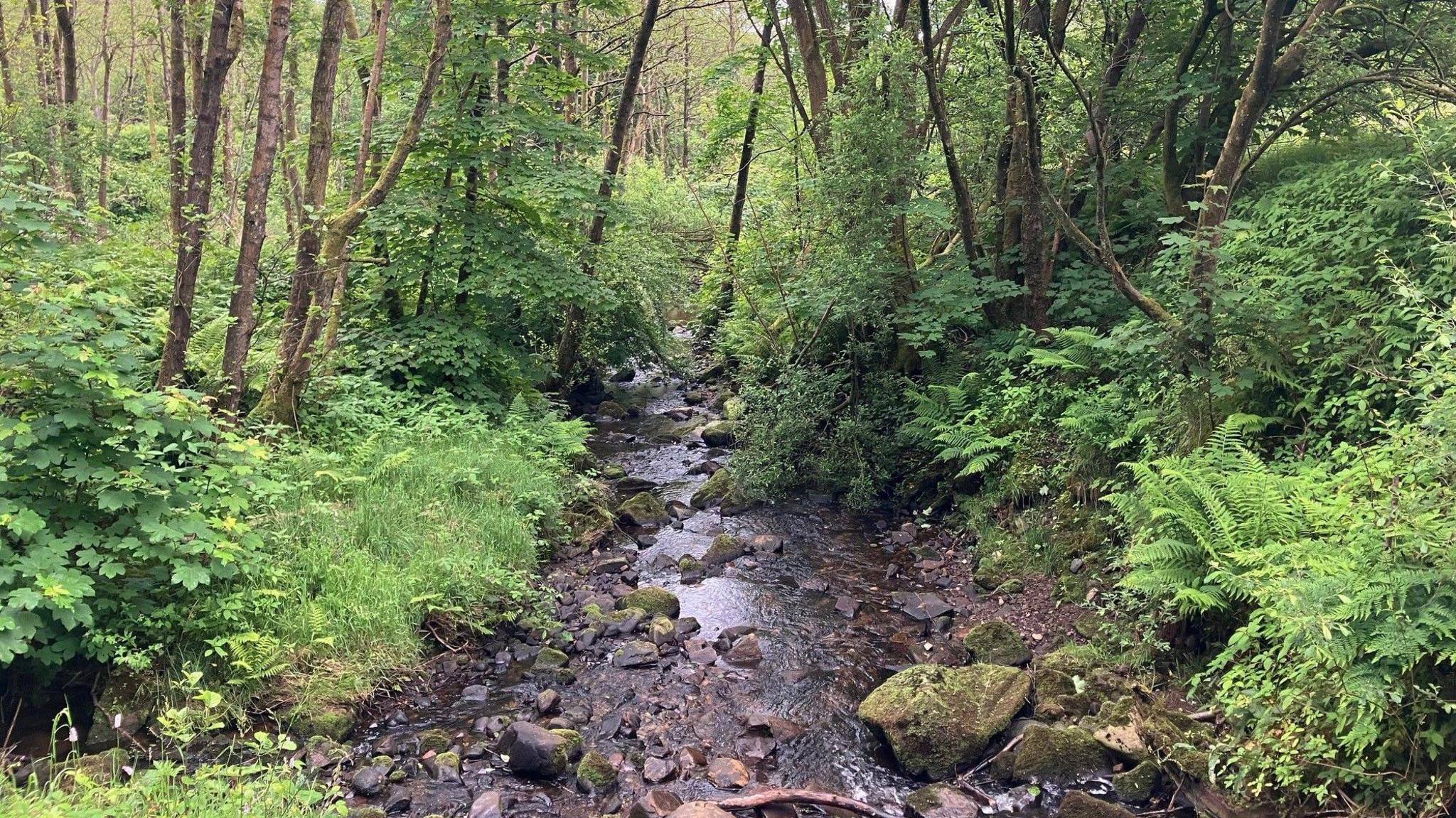
Hilmalayan Balsam thrives in woodland - particularly near rivers and streams
The Woodland Trust is looking for volunteers throughout the summer.
Ms Gleaves said removing the Himalayan Balsam could be therapeutic: "You're just pulling plants out of the ground - but it's a great wellbeing task because of the sound it makes, and the repetitiveness of the action.
"We've got 90 volunteers signed up to the Smithills Estate but we're always looking for more. The more hands the better, because it covers a wider area in a shorter space of time."
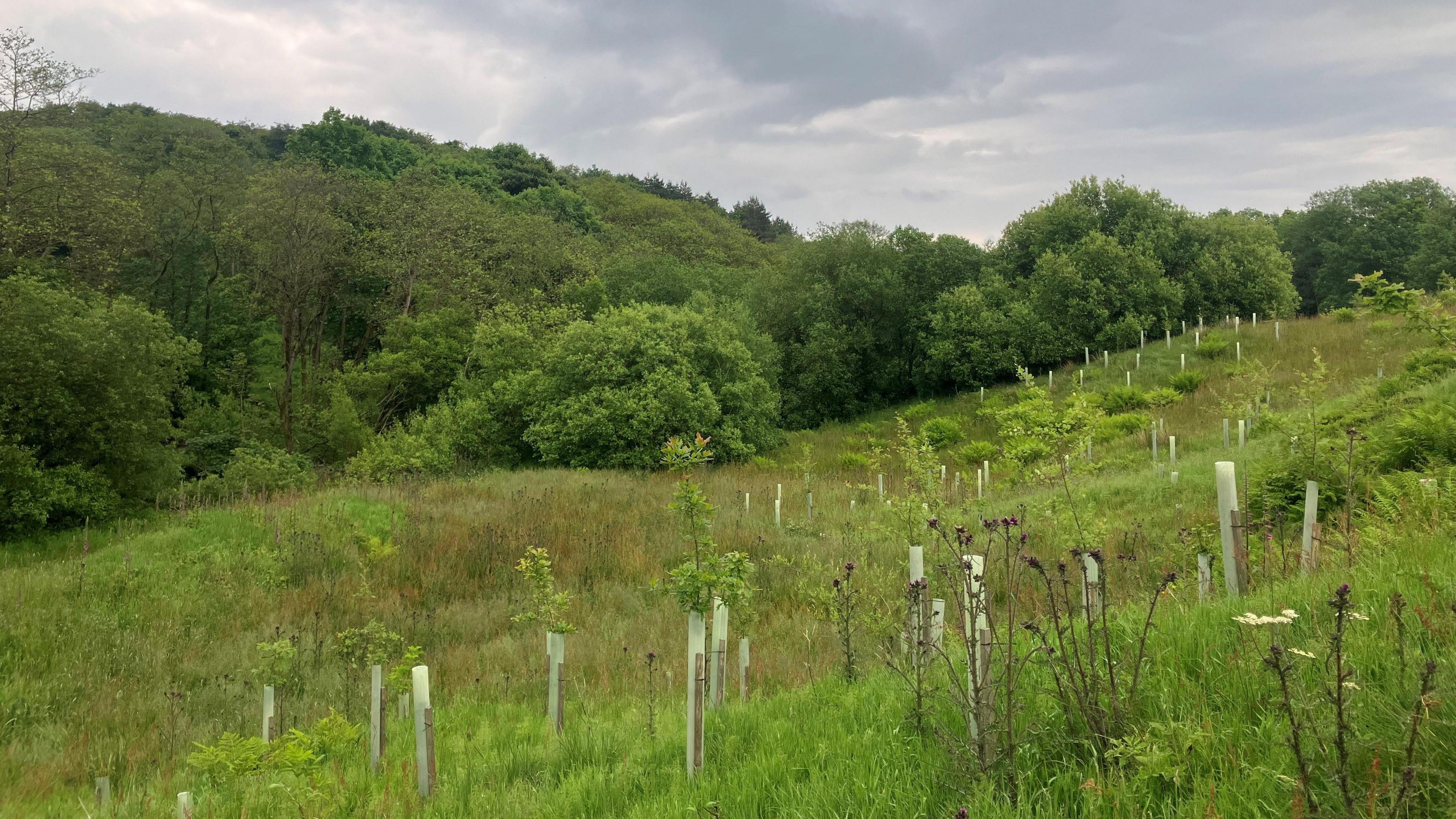
Around 130,000 trees have been planted at the Smithills Estate since 2015
The Smithills Estate was bought by the Woodland Trust in 2015 and is the size of around 1000 football pitches.
Its a mix of grassland, farmland, moorland, wooded cloughs and bog habitats, crisscrossed by dry stone walls.
Since 2015, the Woodland Trust has planted 130,000 trees at the Smithills Estate. They've also planted thousands of sphagnum moss plugs - which hold water. This helps to keep the moorland wet and prevents the spread of wildfires.
Listen to the best of BBC Radio Manchester on Sounds and follow BBC Manchester on Facebook, external, X, external, and Instagram, external. You can also send story ideas to northwest.newsonline@bbc.co.uk, external
Related topics
More like this story
- Published21 May 2024
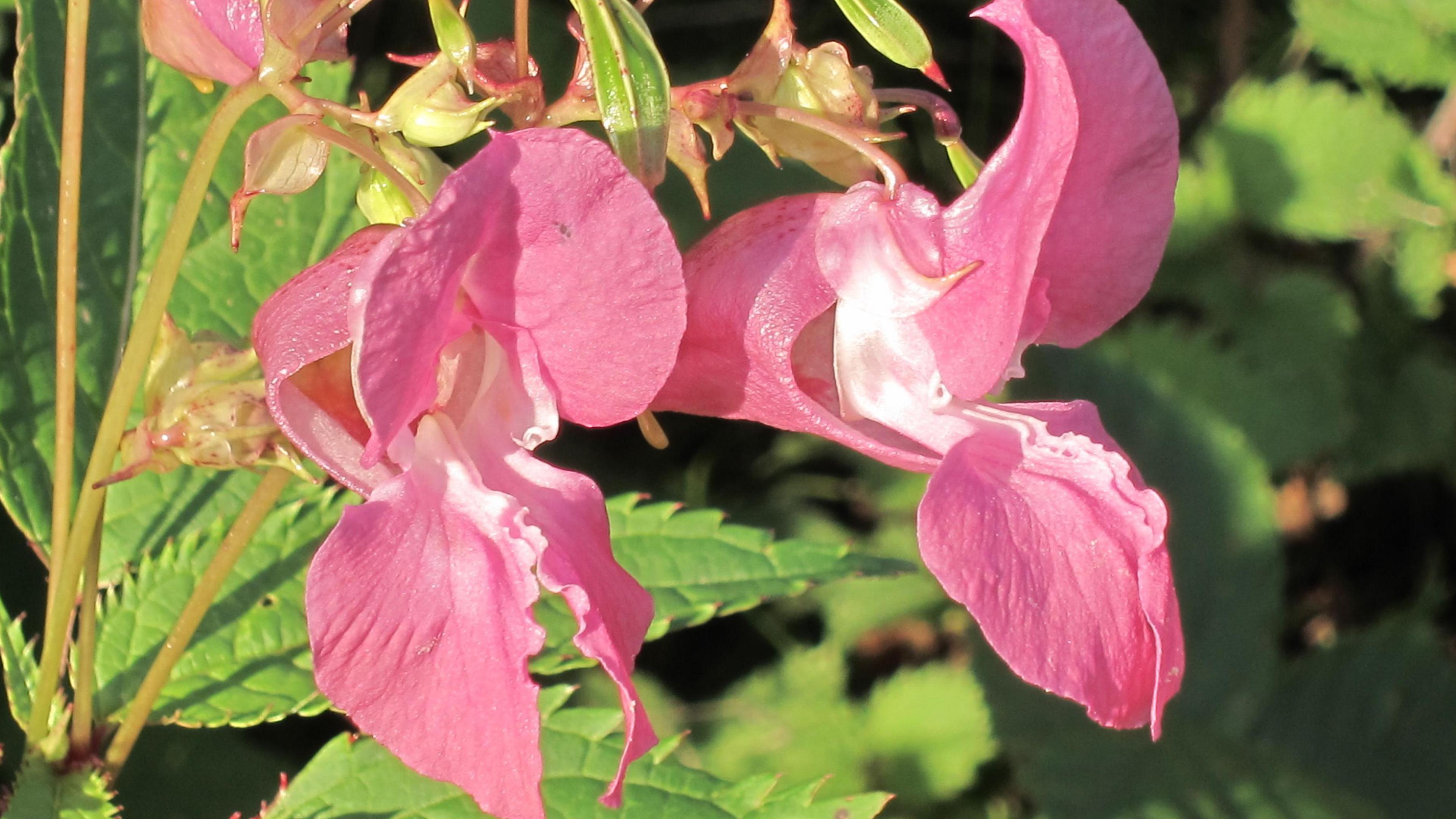
- Published18 May 2024
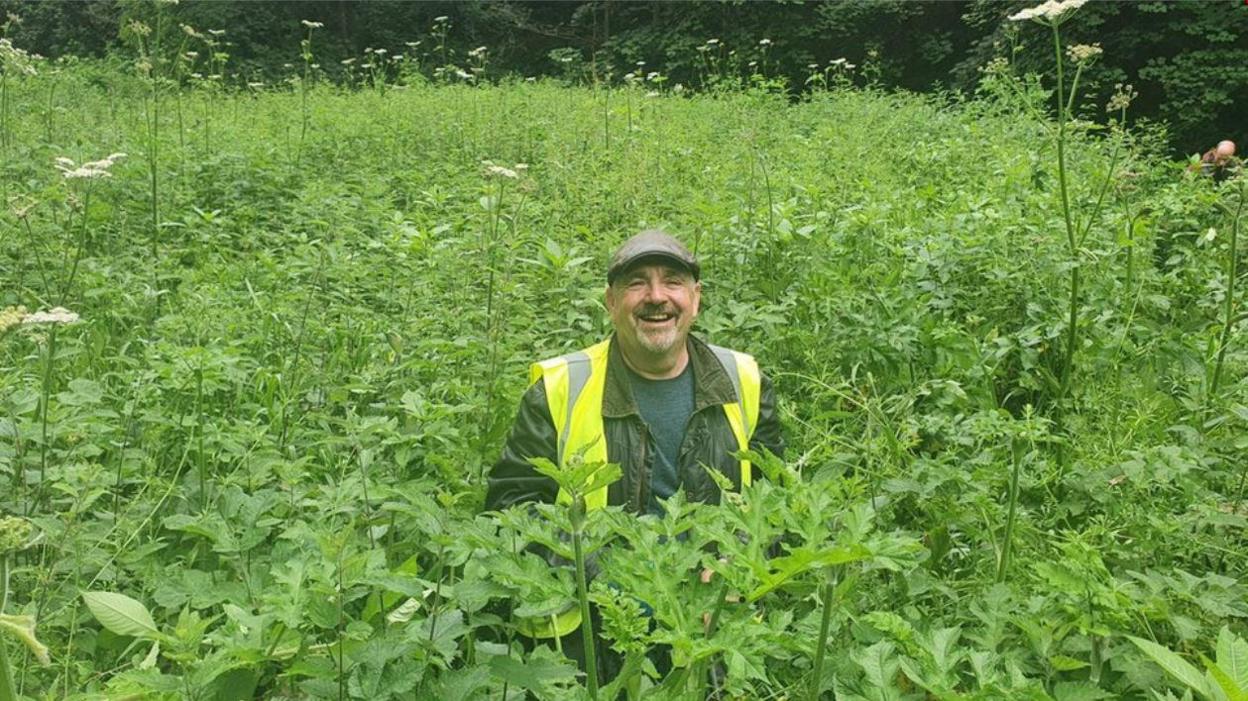
- Published5 March 2024
